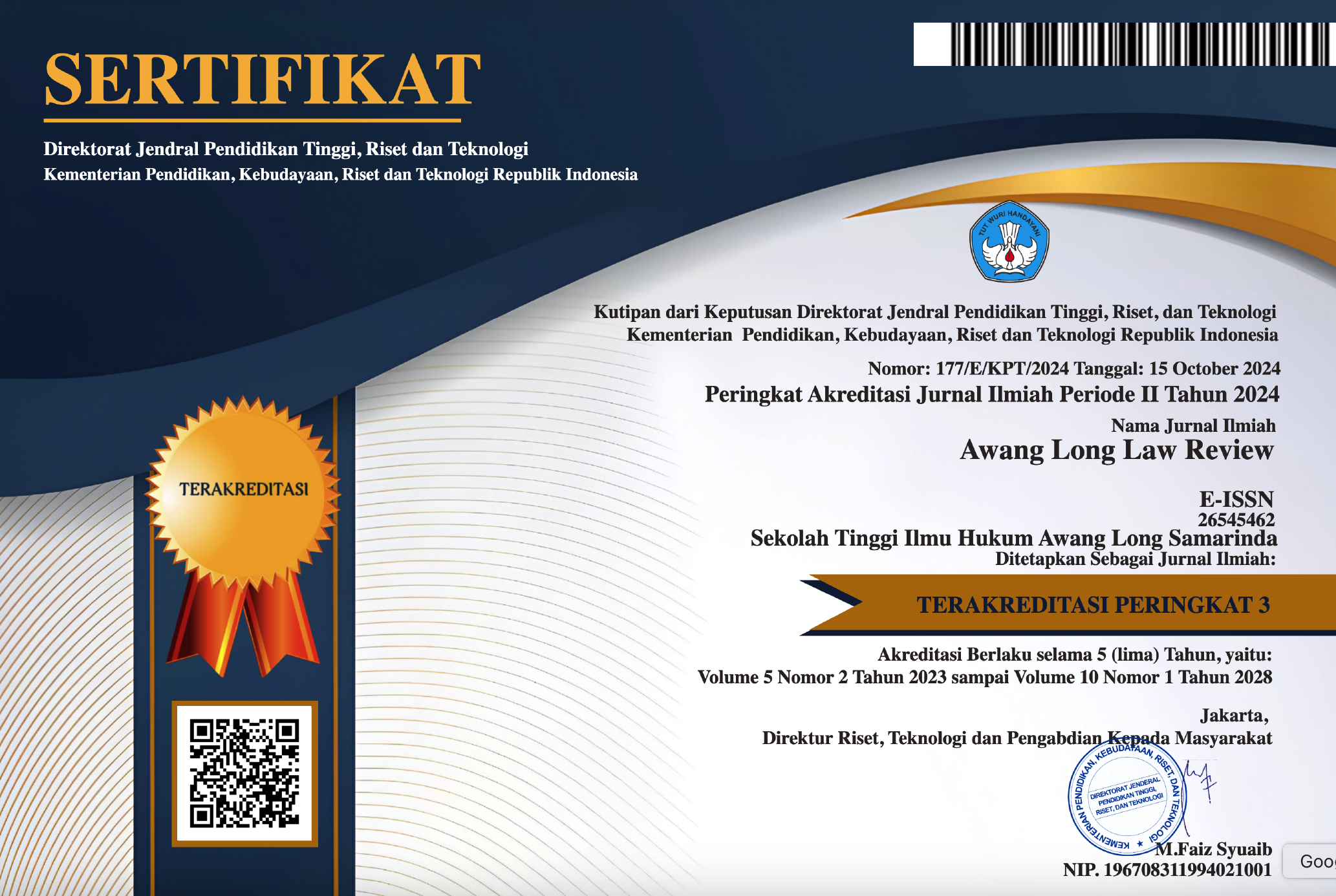NEPOTISM PRACTICES AS CORRUPT BEHAVIOR BASED ON A CRIMINOLOGICAL PERSPECTIVE (CASE STUDY OF PELANGI VILLAGE, SIDODADI VILLAGE, SAMARINDA CITY)
Abstract
The practice of nepotism is still unfamiliar to the people recognizing it as corrupt behavior, however, the community often does it unconsciously. The paradoxical paradox that teaches the practice of nepotism and obscures existing legal norms is the main reason for society to distort nepotism as a corrupt behavior that impacts people's attitudes that seem to discriminate against nepotism. This certainly injures the meaning of nepotism itself when viewed from a criminological perspective. Therefore there needs to be further research on this subject which must be studied from a criminological perspective. In this research, it is oriented to Pelangi Village, Sidodadi Village, Samarinda City as a case study to analyze the pattern of people's behavior towards the practice of nepotism as corrupt behavior which is analyzed based on a criminological perspective. The purpose of this research is to study and analyze the development of nepotism practices as corrupt behavior in the community based on a criminological perspective in Kampung Pelangi, Sidodadi Village, Samarinda City as a case study. This research is an empirical legal research. The technique used in this research is Simple Random Sampling, and data collection techniques are carried out through Field Research and Library Research, with data analysis methods using quantitative descriptive methods.
Downloads
Copyright (c) 2021 Awang Long School of Law

This work is licensed under a Creative Commons Attribution-ShareAlike 4.0 International License.







